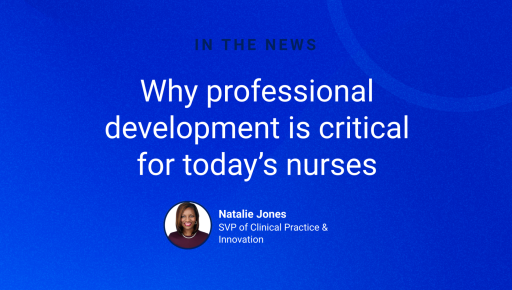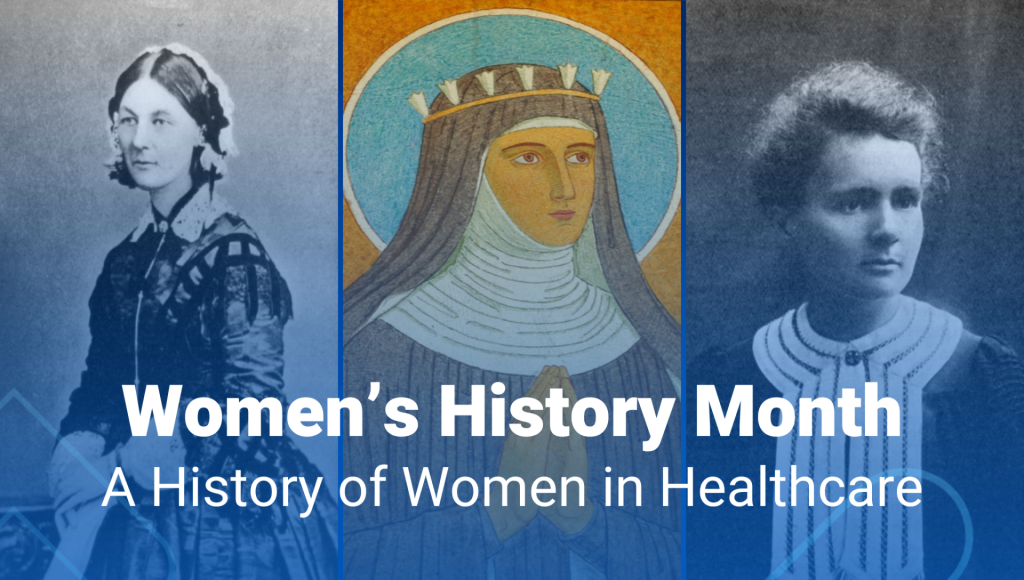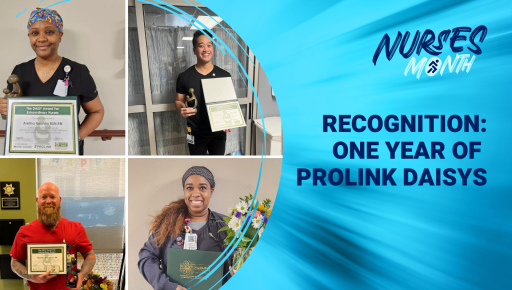Throughout history, women have played significant roles in healthcare, contributing their knowledge, skills, and compassion to the well-being of societies worldwide. Despite facing numerous obstacles and discrimination, women have persevered and made remarkable strides in shaping the healthcare landscape. This article will explore women’s contributions to medicine and the study of wellness from the ancient world through the 21st century, highlighting notable figures who helped push both science and inclusion forward.
Ancient Civilizations
In ancient times, women played vital roles in healthcare, often serving as primary caregivers, healers, and midwives. Historical evidence from various cultures highlights the significant contributions of women in medical practices.
Ancient Egypt was likely the first human civilization to have professional doctors, with records of physicians dating back to 2700 BCE. The first verifiable record of a female doctor dates to around 2400 BCE, but it is possible that female doctors existed as early as 3000 BCE.
The Ebers Papyrus, one of the oldest medical texts dating back to around 1550 BCE, contains references to female healers and midwives who possessed extensive knowledge of herbal remedies and medical treatments. These women played critical roles in providing healthcare to the Egyptian populace, utilizing their expertise in diagnosing and treating various ailments.
Similarly, in ancient Greece, women such as Aspasia of Athens and Agnodice were renowned for their proficiency in medical arts. Aspasia, a respected intellectual and companion of Pericles, is believed to have been a well-known midwife and gynecologist in her day. Agnodice, on the other hand, defied societal norms by disguising herself as a man to study medicine and become a skilled gynecologist, ultimately advocating for women's access to healthcare.
The Middle Ages
During the Middle Ages, healthcare was closely intertwined with religious institutions, superstitions, and practices of questionable safety and efficacy. Women unfortunately played a limited role in society outside the home, and therefore could not practice medicine professionally despite commonly possessing some basic first aid skills.
One notable exception is Hildegard of Bingen, a German Benedictine abbess, mystic, and polymath who made significant contributions to medical knowledge. Hildegard wrote extensively on various topics, including medicine, and her nine-volume work Physica detailed the medicinal properties of plants and herbs, as well as holistic approaches to healing. She advocated for the use of natural remedies and emphasized the interconnectedness of physical, mental, and spiritual well-being.
Another is Trotula of Salerno, a renowned physician and scholar who lived in the 11th century CE. She was associated with the Schola Medica Salernitana, a medieval medical school in Salerno, Italy, where she taught and practiced medicine. Trotula revolutionized the then-male-dominated field of gynecology, advancing the field of women’s health with her progressive ideas. Her work Trotula Major was massively influential on pre-modern medicine and was the only book of its time written to educate male practitioners on the female body.
The Renaissance through the 18th century
During the Renaissance period (1450-1650), a significant shift occurred in the field of medicine, marked by advancements in scientific inquiry and anatomical study. Women, despite facing societal constraints, continued to play essential roles as healers, midwives, and caregivers, contributing to the advancement of medical knowledge and practice.
As women’s history has grown as a field of study in the past 100 years, we now possess a deeper understanding of the role women played as caregivers during this time period. The vital discoveries made by men have traditionally been given the spotlight, however, the women who operated as midwives, nurses, and home healers were instrumental providers themselves.
Women weren’t always on the sidelines, though–for example, Anna Morandi Manzolini, an Italian anatomist, was renowned for her expertise in anatomical wax modeling. Born in 1714, Morandi challenged societal norms by engaging in scientific pursuits traditionally dominated by men. Alongside her husband, Giovanni Manzolini, she conducted anatomical studies and created intricate wax models of human organs and anatomical structures for educational purposes.
Morandi's anatomical wax models were highly regarded for their accuracy and artistic craftsmanship, serving as valuable tools for medical education and research. Her work contributed to a better understanding of human anatomy and physiology during the Renaissance period, laying the foundation for future advancements in medical science.
Despite facing gender discrimination and limited opportunities for formal education, Anna Morandi's passion for anatomical study propelled her to become one of the leading anatomists of her time. Her contributions to the field of anatomy continue to be celebrated today, highlighting the significant role women played in advancing medical science during the Renaissance.
The 19th century
The 19th century witnessed significant advancements in healthcare, largely driven by the pioneering efforts of women who challenged societal norms and transformed the landscape of nursing and healthcare delivery.
Florence Nightingale, often hailed as the founder of modern nursing, made indelible contributions to healthcare during this period. Her experiences as a nurse during the Crimean War exposed her to the deplorable conditions of military hospitals, prompting her to advocate for reforms in healthcare practices. Nightingale emphasized the importance of sanitation, hygiene, and patient care, implementing groundbreaking measures to improve hospital conditions and reduce mortality rates. Her seminal work, "Notes on Nursing," became a cornerstone text in nursing education and laid the foundation for professional nursing standards.
Clara Barton, another influential figure of the 19th century, is renowned for her pioneering efforts in humanitarian aid and disaster relief. Barton's experiences as a nurse during the American Civil War inspired her to establish the American Red Cross in 1881, with a mission to provide aid to victims of natural disasters, conflicts, and emergencies. Through her tireless advocacy and humanitarian work, Barton revolutionized the concept of volunteer nursing and humanitarian aid, leaving a lasting impact on healthcare delivery worldwide.
In addition to their contributions to nursing practice, women in the 19th century played crucial roles in social reform movements, advocating for improved healthcare standards and women's rights. Figures such as Elizabeth Blackwell, the first woman to receive a medical degree in the United States, paved the way for women's participation in medicine and healthcare professions. Blackwell's achievements challenged gender barriers in the medical field and inspired future generations of women to pursue careers in healthcare.
The 20th century
The 20th century marked a period of remarkable progress in medicine and healthcare, characterized by significant advancements in medical science and the increasing participation of women in professional healthcare roles. Despite facing barriers and gender stereotypes, women pursued careers as physicians, surgeons, and medical researchers, making groundbreaking contributions to the field and reshaping the landscape of healthcare.
Marie Curie, a pioneering physicist and chemist, made enduring contributions to medical science through her research on radioactivity. Alongside her husband, Pierre Curie, she discovered the radioactive elements polonium and radium, which revolutionized the field of radiology and led to the development of X-ray technology for medical diagnosis and treatment. Curie's pioneering work earned her two Nobel Prizes in Physics and Chemistry, making her the first woman to win a Nobel Prize and a trailblazer for women in science and medicine.
Gerty Cori, a biochemist and pharmacologist, made significant contributions to the understanding of carbohydrate metabolism and enzymology. Alongside her husband, Carl Cori, she elucidated the biochemical pathways involved in glycogen metabolism, leading to the discovery of the Cori cycle and its implications for metabolic diseases such as diabetes. Gerty Cori's pioneering research earned her the Nobel Prize in Physiology or Medicine in 1947, making her the third woman to receive the prestigious award in medicine.
Today
In the modern healthcare landscape, women have made significant strides in various disciplines, contributing their expertise and skills to advance patient care and medical research. However, despite these advancements, gender disparities persist in leadership positions and pay scales within the healthcare sector, underscoring the ongoing need for gender equity and inclusivity.
In medicine, women have increasingly pursued careers as physicians and specialists, comprising a significant portion of the healthcare workforce. According to data from the Association of American Medical Colleges (AAMC), the proportion of female medical school graduates has steadily increased over the past few decades, with women now representing nearly half of all medical students in the United States. Despite this progress, women remain underrepresented in certain medical specialties and leadership positions within academic medicine and healthcare organizations.
Similarly, in nursing, women continue to dominate the profession, serving as frontline caregivers and healthcare advocates. The World Health Organization (WHO) reports that women make up the majority of the global nursing workforce, playing essential roles in providing primary care, patient education, and health promotion. However, gender disparities persist in nursing leadership roles and pay scales, with men often holding a disproportionate share of executive positions and earning higher salaries.
In healthcare administration, women have made notable strides in leadership roles, serving as hospital executives, healthcare administrators, and policy advocates. However, gender disparities persist in the representation of women in top executive positions, with men disproportionately occupying CEO and board chair roles in healthcare organizations. According to a 2019 report by Rock Health, a healthcare innovation firm, women hold 26% of board positions at Fortune 500 healthcare companies and 37% of executive positions at the 100 largest hospitals. Although significant progress was made in the 2010s, these figures highlight the need for greater gender diversity and inclusion in the healthcare industry.
Looking ahead
To address these gender disparities and promote equity in healthcare, efforts are needed to dismantle systemic barriers, challenge gender norms, and implement policies that support women's advancement and leadership in the field. Organizations such as Women in Healthcare (WIH) and the Women's Health Leadership TRUST are actively working to empower women in healthcare leadership roles and advocate for gender equity initiatives. By promoting diversity, inclusion, and equal opportunity, the healthcare industry can harness the full potential of its workforce and advance the delivery of high-quality, patient-centered care for all.
If women like Florence Nightingale, Marie Curie, and Clara Barton could make world-changing discoveries and progress in eras of institutional sexism and discrimination, the possibilities are endless in an era where equal opportunities for women are prioritized. The healthcare industry and medical field have advanced considerably even since the turn of the century, but there is still a long way to go–and given the discoveries and foundational steps made by women throughout history, it follows that as more progress is made towards true gender equality, the more healthcare as a whole will benefit.
The future of healthcare: you
Find the next step in your healthcare legacy with Prolink. Our dedicated team of recruiters will help you push your career forward with jobs selected just for you. Click below to reach out and start your journey today.









